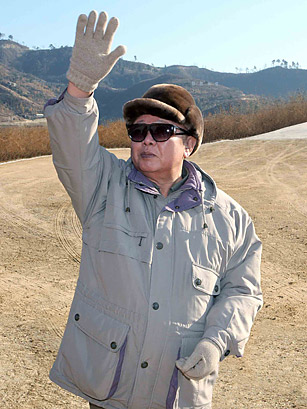
As supreme leader of one of the world's most isolated states, not much is known of North Korea's Kim Jong Il apart from the exalted, often absurd declarations made by the communist regime's official mouthpieces. Things like he once wrote six operas in two years, "coached" his country's World Cup team using invisible cell-phone technology (which he also invented) and scored a 38 under par in a game of golf (making him the greatest golfer of all time). While these feats of skill are dubious, the extreme poverty in North Korea is clear. As Kim has built one of the world's largest standing armies, aid agencies estimate some 2 million people have died since the mid-1990s as a result of food shortages due in large part to economic mismanagement. Kim's totalitarian regime has been accused of torture, public executions, slave labor, forced abortions and infanticides, and an estimated 200,000 people are held as political prisoners.
North Korea's only glimpse of a hope may lie in the ailing Kim's death. In choosing to name his son Kim Jong Un, an inexperienced 20-something, as his successor, Kim created a less certain future as other powerful members of his family jockey for the top spot. That uncertainty, some say, could bring about a change of the guard or even a putsch led by dissatisfied military officers.